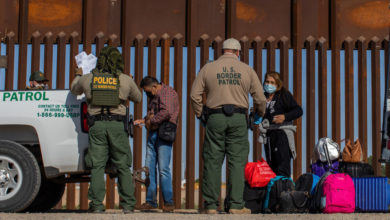Steny Hoyer: Letting the Filibuster Stand Will Break American Democracy

The United States Senate, in many ways is an outdated remnant of a time when 13 colonies were sovereign states. The Senate was established to represent those entities and not the people. Today, however, at a time when our very democracy is at risk, the Senate serves as a roadblock to the American people’s ability to have their will realized.
Our democracy’s survival is at risk, and the Senate could make it difficult for Americans to have their voices heard. It isn’t what neither the Constitution nor its Framers intended.
In 1966, I was elected as Maryland State Senator. This was indirectly due to two Supreme Court decisions: one in 1962 (Baker, v. Carr), and one in 1965 (Reynolds, v. Sims). The first decision said that the lower houses of every state had to be apportioned based on population—not geography. The central premise being “one man, one vote.” The second case held that both state houses and state senates must reflect populations not geographical subdivisions—in other words, “people, not trees.”
[time-brightcove not-tgx=”true”]
It was not unusual for different states to have widely divergent voting powers, depending on their location, before these decisions. In another case, also in 1964, Wesberry v. Sanders, the Court applied the “one man, one vote” requirement to the U.S. House of Representatives.
As a result of those decisions, Prince George’s County, where I lived, received four additional senators. Up to that time, each of our twenty-three counties had one senator, which meant that Maryland’s smallest county, Kent County, with 15,481 people in 1960, had as many senators as Prince George’s County, with 357,395. To correct this unjust imbalance, I was elected as one of the newly created seats.
In the cases I’ve mentioned, the Supreme Court found that it was a violation of the Constitution’s Equal Protection Clause not to have “substantially equal legislative representation for all citizens in a state regardless of where they live.” That principle applied to state legislatures and the U.S. House of Representatives. However, it did not apply to the U.S. Senate.
That’s because the Senate’s makeup had been determined not by fairness, but by a political deal between thirteen sovereign entities that they would be represented equally in the Senate. While that agreement was included in the Constitution, it is, nevertheless, as much in violation of the “one man, one vote” principle as were the state legislatures before the Court’s rulings in the 1960’s.
The Seventeenth Amendment doesn’t make it a representative body for the people. Voters in Wyoming are almost eighty-times more powerful than their fellow citizens in California—an egregious violation of the sacred principle of equal protection. About 40% of the country’s population is represented by seventy-five Senate members!
In order to increase that inequality, Senate rules and customs have been adopted that render the majority of Americans less capable of working for their own ends. As a result of the Senate’s much-abused filibuster rule, one Senator from any state can effectively veto the actions of the entire body.
The filibuster defies the clear intent of the Constitution and its writers—and of the almost universal legislative practice that “the majority rules.” In fact, James Madison, in Federalist 58, in response to a suggestion that more than a majority be required, said: “In all cases where justice or the general good might require new laws to be passed, or active measures to be pursued, the fundamental principle of free government would be reversed.”
And, in Federalist 22, Alexander Hamilton said: “What at first sight may seem a remedy, is, in reality, a poison. To give a minority a negative upon the majority (which is always the case where more than a majority is requisite to a decision), is, in its tendency, to subject the sense of the greater number to that of the lesser.”
Evidently, the Constitution was written with the understanding that it would sometimes be necessary to have extraordinary majorities: 1) amendment of the Constitution; 2) impeachment or removal of presidents and other officers; 3) approbation by executive of treaty; and 4) overriding president’s objections. However, the Constitution was not written with a provision that required a greater majority to pass legislation. Filibuster is therefore a constitutional requirement that legislation must be passed by a majority.
The Senate has considered itself to be the “greatest deliberative body.” They have, however, become the most non-deliberative body. And, in recent decades, they don’t even discuss (i.e. Filibuster) the reasons they have for opposing legislation.
The House has many times sent to the Senate legislation supported by large majorities of the American people and a majority of the U.S. Senate—only to see its consideration blocked. Last week, the Senate minority refused to debate the Freedom to Vote Act (a crucial voting rights bill). The minority blocks all considerations from raising the minimum wage, securing equal wages, and enacting sensible gun reforms.
Surely the founders did not intend for legislation to be blocked. It was clear that they believed the majority would prevail, both in the House and in the Senate.
It is important that the Senate become democratic, even though it may not be representative of all citizens, and respects majority rule. Let the people’s voices not be silenced by a minority.
My colleagues in Senate should repeal Rule XXII. This allows a filibuster to be used to silence the majority. This good principle is not understood by the premise that such rules are necessary to balance and check. The legislature is responsible for checking the executive. They also check the legislative by using the veto. It’s the Supreme Court that reviews both the Constitution and minority.
Our democracy could be thrown into disarray if the Senate Minority has the veto power to override the Senate Majority. Americans may conclude that their democracy is in danger. This has been repeated too many times around the globe. It must not happen again.




